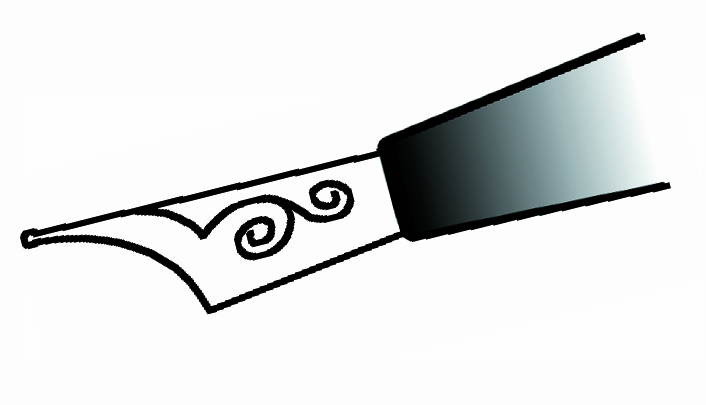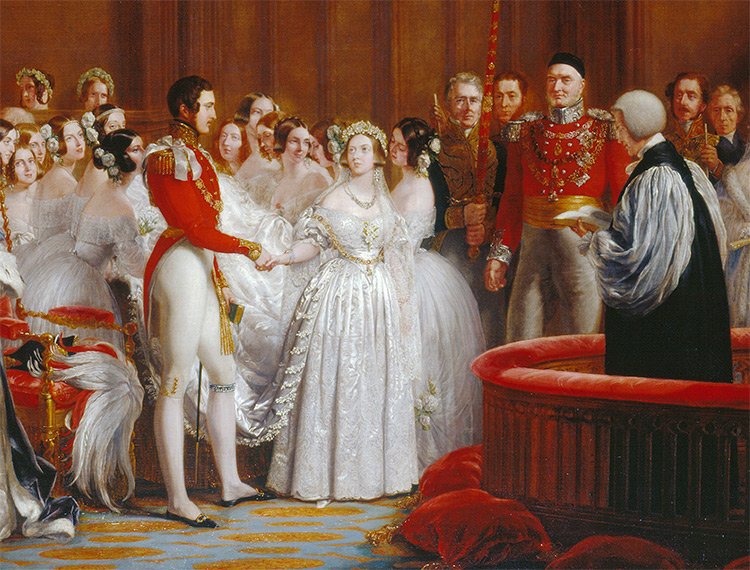Last week Etiquetteer had the great good fortune to tour the White House, and would like to recommend that you do so as well. Requests for White House tours are handled through the offices of your elected representatives to Congress, so find out who yours is and follow the directions. Etiquetteer will admit to having been drawn to the House to tour after a summer announcement from the Obama White House that the tour format had changed to a self-guided tour, and that tourists would now be allowed to take photographs. From the White House website, "As of July 1, 2015, Smartphones and compact cameras with a lens no longer than 3 inches (stills only) are permitted on the public tour route as long as their use does not interfere with other guests’ enjoyment of the tour" [emphasis Etiquetteer's.] Etiquetteer wants to offer a few tips to make your White House tour both enjoyable and Perfectly Proper.
It's very important not to bring much of anything with you. Aside from the list of prohibited items*, there is no place to check anything belonging to you so you can retrieve it later, including your coat. This is because tourists enter the House through one entrance and exit through another; there's no backtracking. Etiquetteer's concession to this was to forego wearing a hat, which would of course be removed instantly on entering someone's home. Etiquetteer rather regrets that Misbehaving Very Young Children are not included on the prohibited list, but to suggest such a thing would seem to some an Assault on American Motherhood. If Very Young Children must be brought, their parents should be mindful not only of keeping them out of the way of others - and there's a lot of movement with so many people self-guiding about the House - but also of the historic importance of the rooms one is privileged to tour.
The tour begins outside, rain or shine, so dress accordingly for the weather. Etiquetteer also thinks you should dress for Perfect Propriety - one never knows when a Very Important Person might appear - but most tourists appeared in tourist clothes: cargo pants, jeans, sweaters, etc. Etiquetteer observed one large group of chaperoned high school students all wearing identical hoodies with their school logo, which has the advantage of being Perfectly Practical.
The line forms here, in front of the building next door to the White House.
Etiquetteer was fortunate enough to enjoy bright and brisk autumn sunshine while waiting in line with other citizens, chatting with the family from Alabama directly ahead. At the appointed time, National Park Service rangers admit those in line with tickets and government-issued identification. The line curves past a large equestrian statue, and then divides in two, where reservation forms and ID are checked by agents. Tourists then walk past another ranger who distributes small tour guides to an interior space where everyone is briefly checked and goes through a metal detector. It is very important to pay attention before to items not allowed on the tour; Etiquetteer witnessed a tourist have to give up some sort of prohibited item or be turned away.
Tourists then walk outside and approach the entrance to the East Wing. Etiquetteer remembers touring the White House in 1980 and entering directly from this entrance without the intervening security. One proceeds up the stairs and down the East Colonnade overlooking the Jacqueline Kennedy Garden, and through a square room containing large portraits of former presidents and a small gift shop. (Etiquetteer thinks Millard Fillmore deserves better than to be hung over the cash register.)
President Fillmore surrounded by cashiers.
From here one enters the Ground Floor of the White House, where the China and Vermeil Rooms and the Library may be viewed. At least on the day Etiquetteer was there, the Diplomatic Reception Room and the other half of the floor were screened off. The rooms on this floor are not suitable for large crowds of tourists, as they have only one door. Ropes across the door keep tourists from entering. Etiquetteer recommends showing courtesy to fellow tourists by not spending too much time in the doorways; have a look and then pass on. Don't become an obstruction for others.
Etiquetteer does not advise making political commentary on current or former occupants of the House to the Secret Service agents on duty. Staff of the House are loyal to the Presidency, and Etiquetteer thinks it courteous not to put any of them into a position of saying "No comment" to an Impertinent Question, no matter how humorously or mock-humorously intended.
From the Ground Floor one ascends a staircase and suddenly enters the East Room from a corner entrance.
The East Room
Mostly roped off so that one can appreciate the true scope of the room, the Obamas have added a few items created by groups they have visited or who have visited the White House.
From the East Room, tourists may proceed at their own pace through the Green, Blue, and Red Rooms to the State Dining Room. Throughout the State Floor rugs have been rolled back to preserve them from extensive tourist foot traffic, but this does not mar the beauty of the rooms, nor much disarrange the furniture.
Notice how the beauty of the Blue Room is retained even with the carpets rolled up.
Each room has two doors. For parties of two or more, Etiquetteer recommends splitting in half so that one half can photograph the other in each room. A uniformed Secret Service agent is present in each room to answer questions and share information. They are also there to keep tourists from sitting on the furniture, even if it isn't behind a rope. Etiquetteer witnessed a Secret Service agent politely directly a young woman not to sit in a Red Room chair, even though it was not behind the ropes.
The deceptively available Red Room chair.
From the Red Room, the tour continues through the State Dining Room (with a peek into the smaller Family Dining Room), through the other half of the Cross Hall, and then out the Entrance Hall through the North Portico. This portion of the tour contains the location where most tourists want to get their pictures taken: the Blue Room entrance flanked by the flags and surmounted by the Seal of the President of the United States.
The most popular selfie backdrop in the White House.
Under the circumstances, waiting for the Perfect Photo Opportunity could take so long that the Secret Service might get overly interested. Etiquetteer considers that "making do" is the best strategy.
Etiquetteer could not avoid being photobombed.
It might seem odd to some that the grand piano has been placed in the Entrance Hall instead of the East Room, but one must remember that it is often used when there is dancing in the Entrance Hall, and that the East Room is used for many types of functions when a piano might be in the way.
And so the White House tour ends with an exit to the North Portico. Tourists want to linger on the steps, but the Secret Service firmly and courteously keep everyone moving down the stairs. Many continue taking photographs down the drive, and in the street outside the gates, and across the street in Lafayette Square. The entire tour was a worthwhile experience, not only to view the rooms which have witnessed so much History, but to see how valuable Fellow Citizens feel it is to tour. Etiquetteer encourages you to do so.
*Items prohibited on White House tours: video recorders, video cameras including any action camcorders, cameras with detachable lenses, tablets, tripods, monopods, camera sticks (the increasingly popular and menacing “selfie stick”), handbags, bookbags, backpacks, purses, food or beverages, tobacco products, personal grooming items (i.e. makeup, lotion, etc.), strollers, any pointed objects (which Etiquetteer took to include pens or pencils), aerosol containers, guns, ammunition, fireworks, electric stun guns, mace, martial arts weapons/devices, or knives of any size.


















